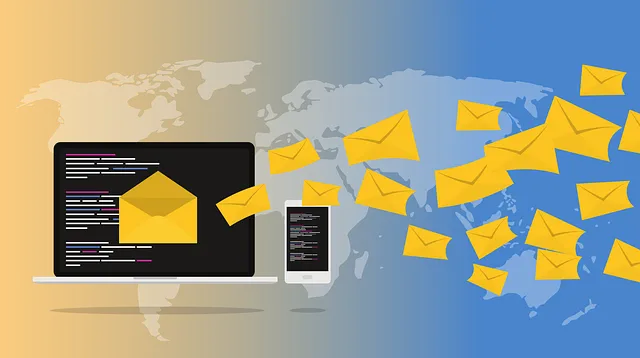Private Internet Access (PIA) serves as a critical tool for environmental activists and scientists by providing strong encryption protocols and an anonymizing browser that effectively hides IP addresses to protect user identities and locations. This is particularly important when discussing sensitive environmental issues. The service's no-logs policy ensures user privacy, safeguarding against surveillance or interference from potentially hostile parties. PIA's performance and extensive global server network facilitate the secure sharing of large datasets for collaboration on research. Its ad-blocking and security features further enhance data protection, making it an invaluable resource for academic researchers who require anonymity and integrity in their online activities. PIA's commitment to privacy and its robust infrastructure enable these users to work confidently and efficiently, reinforcing the value of the VPN as a key asset for the academic community focused on environmental activism and scientific inquiry.
In the scholarly domain, the integrity and security of research data are paramount. Amidst a digital landscape rife with surveillance and cyber threats, academic researchers, particularly those focusing on sensitive topics like environmental activism, require robust protective measures. This article delves into the essential role of Private Internet Access (PIA) as an anonymizing browser, safeguarding research from unwanted exposure or tampering. We dissect PIA’s features and performance metrics tailored for academic use, ensuring researchers can maintain privacy while accessing critical data. With a focus on environmental activists and scientists, we also outline best practices for incorporating PIA VPN into their research workflow, fostering an environment of secure and unhindered inquiry.
- Understanding Private Internet Access: A Shield for Environmental Activists and Scientists
- The Role of Anonymizing Browsers in Protecting Research Integrity
- Evaluating Private Internet Access's Features and Performance Metrics for Academic Use
- Best Practices for Environmental Activists and Scientists Using PIA VPN in their Research Workflow
Understanding Private Internet Access: A Shield for Environmental Activists and Scientists

Private Internet Access (PIA) serves as a vital tool for environmental activists and scientists who require a secure and private online environment to share sensitive data, communicate with colleagues, or publish research that may be at risk of surveillance or interference. PIA’s anonymizing browser capabilities ensure that users can browse the web without exposing their true IP addresses, thus protecting their identities and locations. This is particularly crucial for individuals working in regions where environmental activism is a sensitive subject, as it shields them from potential threats posed by state-actors or other entities with vested interests in maintaining the status quo.
Furthermore, PIA’s robust encryption protocols, such as OpenVPN, provide a secure tunnel for data transmission, which is indispensable for scientists and researchers who need to share large datasets or collaborate on projects that require a high degree of confidentiality. The service’s no-logs policy further bolsters user privacy by ensuring that no activity logs are kept that could potentially be accessed by third parties. By employing PIA, environmental activists and scientists can navigate the digital landscape with greater peace of mind, knowing their communications and data are protected from unauthorized access and interference.
The Role of Anonymizing Browsers in Protecting Research Integrity

Evaluating Private Internet Access's Features and Performance Metrics for Academic Use

When assessing Private Internet Access (PIA) for its suitability in academic research, particularly for environmental activists and scientists who require a high degree of anonymity, it is imperative to evaluate both its feature set and performance metrics. PIA offers a robust suite of features designed to enhance privacy and security online. These include the anonymizing browser that ensures users’ digital footprints are concealed, ad-blocking capabilities to minimize distractions and potential tracking, and protection against malicious sites. For researchers who handle sensitive data or collaborate with activists, such features are not just beneficial but crucial for maintaining confidentiality and integrity of their work.
In terms of performance metrics, PIA’s service is measured by its speed, reliability, and global server reach. Academic research often demands access to diverse datasets and collaboration with international peers, necessitating a VPN provider that can offer consistent and fast connections worldwide. PIA’s network infrastructure is designed to support high-bandwidth activities such as data transfer and streaming, which are common in academic research. Additionally, the service’s commitment to not log user activity aligns with the ethical standards of academic integrity and provides an additional layer of privacy for researchers who may be studying sensitive or controversial topics like environmental activism. The combination of PIA’s features and performance metrics makes it a strong contender for academic users who prioritize security and efficiency in their online activities.
Best Practices for Environmental Activists and Scientists Using PIA VPN in their Research Workflow

Private Internet Access (PIA) emerges as a critical tool for academic researchers, particularly those in fields like environmental science where data integrity and anonymity are paramount. This article has delineated the multifaceted benefits of PIA, emphasizing its role in safeguarding research integrity and ensuring secure communication. With robust features and proven performance metrics, PIA not only serves as a shield for environmental activists and scientists but also integrates seamlessly into academic research workflows. Academic institutions and researchers are encouraged to adopt this anonymizing browser as a standard practice to protect their data and maintain the integrity of their findings in an increasingly digital world. By doing so, they can uphold the principles of responsible and secure research, ensuring that their contributions to knowledge remain protected and unaffected by external surveillance or interference.
